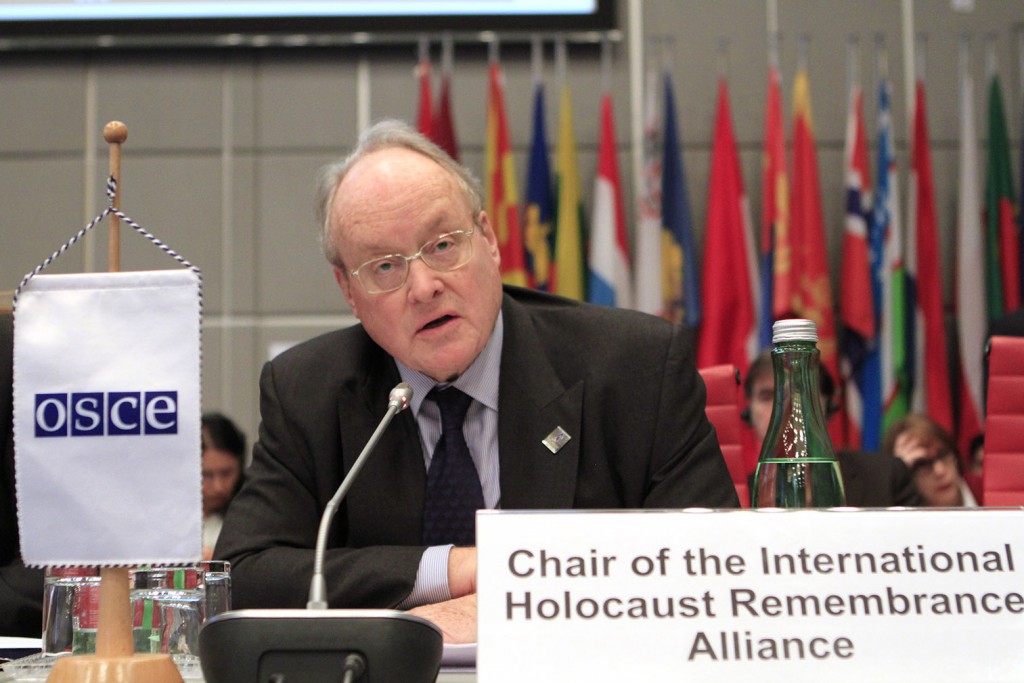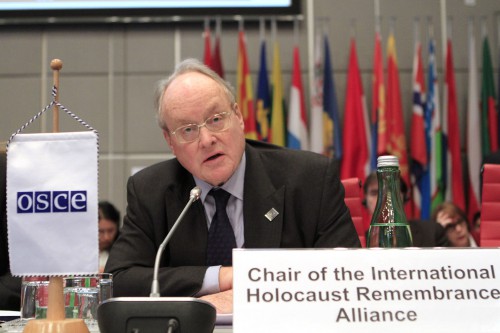27th January 2015
Remembering the Holocaust


In November 2005, the United Nations General Assembly declared 27 January as International Holocaust Remembrance Day. The date recognises the liberation of the Auschwitz-Birkenau slave labour and extermination camps in 1945. As well as being an occasion to remember the millions who suffered and died under Nazi policies, Holocaust Memorial Day gives us a chance to reflect on the nature of anti-Semitism, xenophobia and prejudice in general and to debate why the Holocaust happened and what we might do to prevent future genocides.
There will be many significant commemorations of the Day, including that led by the British government. The Holocaust Memorial Day Trust website has many details. Britain’s role this year is especially important given our chairmanship until March of the International Holocaust Remembrance Alliance (IHRA), an intergovernmental body whose purpose is to place political and social leaders’ support behind the need for Holocaust education, remembrance and research nationally and internationally. IHRA currently has 31 member countries and five observer countries, and over the last year has conducted discussions with the Holy See about the possibility of a closer relationship.
2015 is especially significant, as it marks the 70th anniversary of the Soviet liberation of Auschwitz-Birkenau and the British liberation of Bergen-Belsen. It will also be the 20th anniversary of the genocide in Srebenica, Bosnia. It is appropriate that this year’s theme is “Keeping the Memory Alive”. Recent events in Nigeria, Syria, Iraq, Ukraine, France and elsewhere demonstrate, sadly, that man’s capacity for intolerance and inhumanity has not diminished with time. The generation of WWII, and the last survivors of the death camps, will soon no longer be with us. Remembering the Holocaust, and that the actions of some good individuals did indeed help to save lives, is an essential part of our taking responsibility for the present.
And we are reminded that we can all make a difference if we care. For example, Dr. Giovanni Borromeo, wartime Director of the Fatebenefratelli hospital in Rome, located directly across from the main Rome Synagogue on the Tiber River. When Jewish lives were at risk following the German occupation, Dr. Borromeo – working with Monsignor Montini (who later became Pope Paul VI) – created a way to save Jews from deportation. He hid them in a special section in the hospital, where he kept them under quarantine for a “horrible disease” that he invented, called “Morbo di Kappa” (a play on the name of the Head of the Gestapo in Rome). A “disease” that could ultimately cost you your life. When the Nazis came to look for Jews, they didn’t enter this quarantined section due to the fear instilled in them by Dr. Borromeo about this “disease”. The Jews would stay there for a few days until they received fake Vatican documents and would then be sent to local convents where they were kept in hiding until liberation. Dr Borromeo was honoured by the Jewish Community of Italy, and by Yad Vashem.
I have heard many similar stories here in Rome. The protagonists could not stop the Holocaust. But nor were they indifferent, or despairing, or shut their eyes when faced by evil. We all hope we would act like them in similar circumstances. By remembering, we honour the good people alongside the victims, and put substance behind the words “Never Again!”.